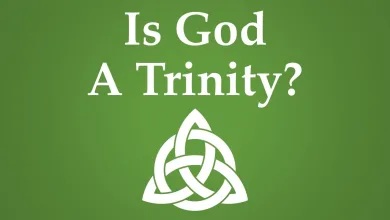Is Jesus Really Coming Back?
Many people these days are thinking about the future. This was not so true until relatively recently, because in the larger scheme of things, not much was changing from century to century. In the last few hundred years, though, things have started to change, and even more recently, to change rapidly. It is difficult for us to imagine what life will be like in ten years, let alone a hundred or a thousand! So more and more people have questions like, “Where is all of this going?” or, “What does the future hold?”

The Bible has some of the answers. Nearly all Christians from the first century on have believed Jesus Christ is coming back to earth someday. Why? Because the New Testament makes it abundantly clear. His sermon known as the Olivet Discourse is about events leading up to and including his return (Matthew 24–25; Revelation 19:11–21 also describes his return).
What Does the Bible Reveal?
During the Last Supper, Jesus said,
My Father’s house has many rooms; if that were not so, would I have told you that I am going there to prepare a place for you? And if I go and prepare a place for you, I will come back and take you to be with me that you also may be where I am.
John 14:2–3
At his ascension, two angels promised, “This same Jesus, who has been taken from you into heaven, will come back in the same way you have seen him go into heaven” (Acts 1:11).
The epistles often mention the second coming. Paul taught very new believers to anticipate and prepare for Christ’s return. They did not always grasp the details, so he wrote to clarify matters (e.g., 1 Thessalonians 4:13–5:11; 2 Thessalonians 2:1–12) about this great event he calls the “blessed hope” (Titus 2:13).
The word hope here differs in meaning from how we often use it (“I hope I win the Publishers Clearing House Sweepstakes!”). The New Testament concept refers to a confident expectation of something future; you hope in something because you know for certain that one day it will be a part of your experience. Other writers also encouraged Christians to live in light of the return of Jesus (e.g., James 5:7–8; 1 Peter 1:13; 2:12; 4:7, 13; 5:1–4).
The New Testament mentions the second coming more than three hundred times. Not only is every Christian to know this wonderful reality, it also should be his or her daily longing. Jesus “will appear a second time for salvation without reference to sin, to those who eagerly await Him” (Hebrews 9:28 NASB); “Keep yourselves in the love of God, waiting anxiously for the mercy of our Lord Jesus Christ to eternal life” (Jude 21 NASB).
What Difference Should It Make?
The crucial point here is that the second coming is not just a theological truth we should know and believe; it is a certainty that should have a profound impact on how we live daily.
First, as John explains, the return of Christ should motivate us to live holy lives in anticipation of standing before our Savior.
Dear friends, now we are children of God, and what we will be has not yet been made known. But we know that when Christ appears, we shall be like him, for we shall see him as he is. All who have this hope in him purify themselves, just as he is pure.
1 John 3:2–3
Peter, in the context of assuring that Christ is indeed coming back, says, “What kind of people ought you to be? You ought to live holy and godly lives as you look forward to the day of God and speed its coming” (2 Peter 3:11–12; see also v. 14).
Second, the return of Christ should cause us to be faithful in his absence and therefore ready for his coming, whenever it may be. At the end of the Olivet Discourse, Jesus told a series of parables to make this point. He told us to “keep watch, because you do not know on what day your Lord will come” (Matthew 24:42). The faithful servant does what his master charges him to do in the master’s absence and is found doing it when his master unexpectedly returns (vv. 45–51). Jesus also said, “Look, I come like a thief! Blessed is the one who stays awake and remains clothed, so as not to go naked and be shamefully exposed” (Revelation 16:15).

Third, the hope of Christ’s return is to be a comfort and encouragement to us in the present as we endure hard times. Paul corrected the Thessalonian Christians with regard to their understanding of the second coming, but after each clarification he said, “Therefore encourage one another with these words” (1 Thessalonians 4:18; see also 5:11). All the suffering on earth that believers experience needs to be seen in the perspective of what the future holds:
Our light and momentary troubles are achieving for us an eternal glory that far outweighs them all. So we fix our eyes not on what is seen, but on what is unseen, since what is seen is temporary, but what is unseen is eternal.
2 Corinthians 4:17–18
In other words, the unimaginably wondrous blessings Christ will bring for his people and what they will experience with him forever in eternity will make any suffering on this earth more than worth it. Specifically, believers who suffer through persecution for the name of Jesus are to be comforted by their hope—that is, their knowledge of the certainty—of his return:
God is just: He will pay back trouble to those who trouble you and give relief to you who are troubled, and to us as well. This will happen when the Lord Jesus is revealed from heaven in blazing fire with his powerful angels.
2 Thessalonians 1:6–7
Jesus is indeed coming back. We should believe this with great confidence. But even more so, this blessed hope should shape our thoughts, motives, attitudes, words, and actions every day. And our longing should be, “Come, Lord Jesus” (Revelation 22:20).
INTERESTING FACT
As I write this, England’s William and Catherine are celebrating their first hours of marriage. Vast crowds have lined the streets, awaiting the newlywed couple’s short open-carriage ride from Westminster Abbey to Buckingham Palace for just a glimpse of their future king and queen. This is a beautiful picture of what all believers should constantly, consciously, and “anxiously” look for: the coming of the King of Kings, our Lord and Savior.
NASB New American Standard Bible
NASB New American Standard Bible
Aaron, D. (2012) Understanding Theology in 15 Minutes a Day. Minneapolis, MN: Bethany House Publishers, pp. 192–195.




